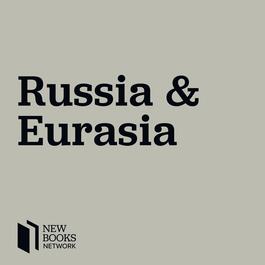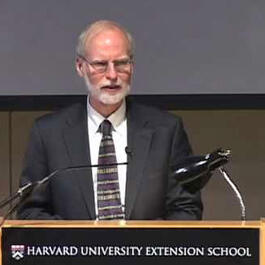
New Books in Russian and Eurasian Studies
Interviews with Scholars of Russia and Eurasia about their New Books Support our show by becoming a premium member! https://newbooksnetwork.supportingcast.fm/russian-studies
Show episodes

Richard W. Harrison, "The Soviet Army's High Commands in War and Peace, 1941–1992" (Casemate Academic, 2022)
Richard W. Harrison's The Soviet Army's High Commands in War and Peace, 1941-1992 (Casemate Academic, 2022) is the first full treatment of the unique phenomenon of High Commands in the Soviet Army during World War II and the Cold War. The war on the Eastern Front during 1941–45 was an immense struggle, running from the

John Givens, "The Image of Christ in Russian Literature: Dostoevsky, Tolstoy, Bulgakov, Pasternak" (Northern Illinois UP, 2018)
In The Image of Christ in Russian Literature: Dostoevsky, Tolstoy, Bulgakov, Pasternak (Northern Illinois University Press, 2018), Dr. John Givens of the University of Rochester discusses classics of Russian literature such as The Brothers Karamazov and Dr. Zhivago, as well as texts of less renown to English-speaking a

Regina Kazyulina, "Women Under Suspicion: Fraternization, Espionage, and Punishment in the Soviet Union During World War II" (U Wisconsin Press, 2025)
Officially, women in the Soviet Union enjoyed a degree of equality unknown elsewhere in Allied countries at the time. However, long-standing norms of gendered behavior and stereotypes that cast women as morally weak, politically fallible, and sexually tempting meant that women in the army or living behind enemy lines w

Joseph Kellner, "The Spirit of Socialism: Culture and Belief at the Soviet Collapse" (Cornell UP, 2025)
The Spirit of Socialism is a cultural history of the Soviet collapse. It examines the millions of Soviet people who, during the cascading crises of the collapse and the post-Soviet transition, embarked on a spirited and highly visible search for new meaning. Amid profound disorientation, these seekers found direction i
World War II endures in the popular imagination as a heroic struggle between good and evil, with villainous Hitler driving its events. But Hitler was not in power when the conflict erupted in Asia—and he was certainly dead before it ended. His armies did not fight in multiple theaters, his empire did not span the Euras

James D.J. Brown, "Cracking the Crab: Russian Espionage Against Japan, from Peter the Great to Richard Sorge" (Hurst, 2025),
The Russians came late to Japan, arriving after the Portuguese and other European powers. But as soon as they arrived, Russia tried to use spies and espionage to learn more about their neighbor—with various degrees of success. Sometimes, it failed miserably, like Russia’s early attempts to make contact with pre-Meiji J

